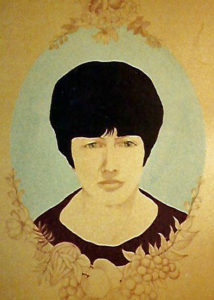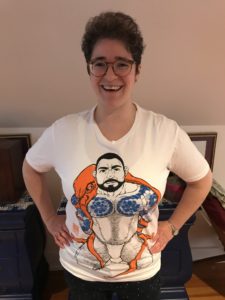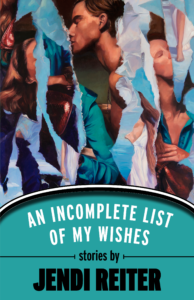Just as today we debate “separating the art from the artist” when an influential creator’s bad behavior comes to light, the early Christians were split over the standards for mediating their own sacred inspiration. A purist breakaway group in North Africa in the fourth century contended that clergy had to be morally blameless, or else their ministry, prayers, and administration of the sacraments were not effective. Because church authorities (rather conveniently) rejected this position, we know it as the “Donatist heresy”.
The official line has pragmatism to commend it: it’s bad enough when “all your faves are problematic”, but if you have to start worrying that your baptism or absolution is invalid, your eternal fate might depend on the unknown misdeeds of your priest. That’s too much stress and uncertainty for the flock. On the other hand, I think we’re seeing nowadays that the clergy abuse crisis is retroactively undermining many Christians’ experiences of God in church. The truths they thought they knew, the love they felt in the worship and sacraments–was it all a lie? When someone or something formative for us is exposed as predatory, we may even doubt the goals, beliefs, and affections that once seemed synonymous with our “self”.
In this October 2018 article from Vox, Constance Grady asks some literary critics to weigh in on “What do we do when the art we love was created by a monster?” On social media, there’s a predictable cycle of declaring that some creator is “cancelled” because of anything from an unfortunate remark to serial predation, followed by a flurry of equally simplistic rants against political correctness. Separating art from artist was the premise of early 20th century New Criticism, which has stuck with us because it makes English-class papers easier to write without historical background. Postmodern “death of the author” theory, meanwhile, can empower readers to reclaim the text from its problematic origins. I see a similarity to the way that progressive Christians claim personal authority to talk back to oppressive Bible passages and carve out a place for marginalized people in the tradition. On the other hand, New Historicists warn that the reader is also embedded in a context that may include the same vices that plagued the creator, like racism and rape culture. We need to look at ourselves as critically as the text.
The critics differed, however, on the question of whether it’s ever reasonable for a critic to decide not to engage with art made by a predator. There are two basic arguments here. One of those arguments…says that engaging critically with a work of art is completely different from endorsing the morality of the artist… The other argument says that our time is limited, we cannot devote equal critical attention to every work of art out there, and it’s reasonable for critics to curate their choices a little…
The issue here is not just “Is this artist monstrous?” but “Is this work of art asking me as a reader to be complicit with the artist’s monstrosity?” It’s the same argument that has come up repeatedly with R. Kelly, who writes songs about sex and consent and age differences between lovers, and who has also been accused of sexually assaulting very young women and girls.
I agree with Grady’s conclusion that there’s no one-size-fits-all theory that’ll determine when to disengage from questionable art or artists. Like a dysfunctional family where love is also possible, or a church that can be both oppressive and liberating, staying or going is a very individual decision.
Over at Into Account, a new blog for lifting up the voices of abuse survivors in church, Stephanie Krehbiel has a message for anyone who’d override that discernment process: “Godly Men, Be Quiet”. Conservative church leaders lately have been making noise about #MeToo because they can’t ignore it, but their pronouncements aren’t followed by structural change or repentance. Survivor-led reform isn’t happening. Too bad:
The vast majority of church leaders have absolutely no business trying to be leaders in the movement to end sexual abuse. Part of how church leaders mess up–particularly in strongly patriarchal traditions invested in male headship (and let’s get real, for all the change that’s happened, that’s still most of Christianity)–is in assuming that they do.
Their business is not to lead; it is to follow. Not for a designated period of penance. Not as part of a healing ritual that they can subsequently advertise. Not as a finite disciplinary sentence.
FOR THE REST OF THEIR LIVES.
Patriarchal Christian masculinity is a powerful drug. It makes many church men believe that the world desperately needs their perspective on everything. It makes their followers believe that asking such men to step aside from leadership is somehow tantamount to cruelty. God is always calling these men to lead someone or something, even when what they know about that thing may be approximately two cents less than nothing. Particularly in the evangelical world, the spiritual quality that seems to most define men like this is their ability to imagine that they hear God in the voice of their own ambition…
I am not asking men in church leadership positions to do nothing about sexual abuse. I’m asking them to devote themselves to the task of following people who have less social power than they do.
Which, you know, sounds a lot like what Jesus told us to do…
In the New York Times last month, Elizabeth Dias’ investigative feature on gay Catholic priests, “It Is Not a Closet. It Is a Cage,” is a heartbreaking look at scores of mostly-anonymous clergy trying to live their vocation while crushed by hypocrisy, secrecy, and loneliness. Being sexually active, apparently, is less scandalous than being honest about one’s orientation while celibate. The atmosphere is even more stifling now because church leadership is erroneously scapegoating gay clergy for the sexual abuse crisis.
Fewer than about 10 priests in the United States have dared to come out publicly. But gay men probably make up at least 30 to 40 percent of the American Catholic clergy, according to dozens of estimates from gay priests themselves and researchers. Some priests say the number is closer to 75 percent…
…The church almost always controls a priest’s housing, health insurance and retirement pension. He could lose all three if his bishop finds his sexuality disqualifying, even if he is faithful to his vows of celibacy.
This topic is in the news again because of the new book In the Closet of the Vatican: Power, Homosexuality, Hypocrisy, an exposé by French journalist Frédéric Martel. On the Nonviolent Atonement blog, gay Catholic theologian James Alison offers a sensitive and well-thought-out analysis of the problem and the way forward. Alison’s work helped me tremendously a decade ago when I was tormented by the gay/Christian question.
Alison describes the book, for which he was interviewed, as “the first attempt of which I am aware at a properly researched answer to the question: ‘How and why is it that the principal institutional obstacle to LGBT rights at the worldwide level appears itself to be massively staffed by gay men?'” This is not a book about the child abuse crisis per se, but rather, about how a culture of duplicity and blackmail is conducive to all sorts of abuses and cover-ups. Most people in the system are not even aware of the big picture:
We’re not talking about one single big lie, where all these men butch it up in public until they get back behind the Vatican walls ― at which point all can relax together in a theatrical green room, let down their hair and call each other Monica, Morgana or Mechthilde while swapping hot takes about their respective beaux. Rather we are talking about endless small lies, defensive manoeuvres, acts of hiding of self, adoptions of positions, fear of loss of livelihood, betrayals of friends, disguises of love, hints of blackmail, bizarre alliances, coded exchanges and resilient creations of habitable bubbles. We are also talking about the ways this system of mendacity reproduces itself through newcomers joining in playing the game. All involved are lying to and about themselves and each other; and yet, at the same time, they both know and don’t know what each other knows.
Furthermore, many are tortured by their own duplicity, not yet having achieved the perfection of polished cognitive dissonance at which some of those whom Martel interviews have obviously arrived. This matches what I have myself observed: the most venomous anti-clericalism and hatred of the Vatican comes from the mouths of its own clerical employees.
Meanwhile, the cognitive dissonance is amplified as sexual diversity has become mainstream in the outside world. Honest discussion of sexuality is the norm–except in the Church. Alison notes (a point that also emerged in the New York Times article) that unlike heterosexual men, many of the gay priests took their vows of celibacy without real understanding of their sexuality or options for healthy romantic partnership.
Church authority still teaches that a young gay person cannot appropriately be socialised into the humanisation of their emotional and sexual urges while dreaming of being married to someone they love. Indeed, far too many Catholic high schools, especially in the United States, are viciously legalistic in their attempts to apply these teachings to their employees and young charges. Further the authorities teach that such a young gay person does not have freedom of choice concerning whether to opt for marriage or a single life. They have a solemn obligation to singleness, with the threat of Hell a powerful enforcer….
Yes, the authorities really do deny there to be such a thing as an emotionally and psychologically balanced openly gay person who, therefore, might make a free choice between marriage or celibacy and so become a straightforward, honest candidate for seminary.
Now, that the official position is a lie is obvious to everyone, and scarcely applied anywhere. Even hard-line Bishops claim that they do not discriminate on the basis of sexual orientation, but instead on the basis of something they call “emotional and affective maturity.” But that effectively means that they do not believe their own teaching, for they are admitting people who their own official teaching claims not to exist. Such candidates are automatically implicated in the dishonesty of their superiors simply by being there. Furthermore, any gay candidate need only learn how to pretend not to be gay, for which many of them have had a whole adolescence-worth of training, and they will certainly find enough seminary officials who will induct them into playing “wink wink, nudge nudge,” having themselves become masters at the same game.
In short, long before any issue of a candidate’s sexual practice comes up, whether in the past, the present or the future, he finds that the one thing that is impossible is straightforward, first-person narrative honesty.
…Imitation is a much stronger force than instruction, and any gay candidate for seminary will see many others like himself already in the seminary, and will be interviewed by others like himself on the seminary staff. If in the midst of this he is presented with the instruction “You are required to be honest about being gay, and if you are gay and honest, your vocations counsellor is required to tell you that you cannot join,” he is not really being presented with a straightforward moral choice. In context, he is being presented with a hurdle, and his capacity to jump it will show whether or not he will be a suitable game player like all the others. Just in case the hurdle seems a little high, and if the vocations director likes the candidate, he may suggest that the kid is not really gay, just suffering from a transitory form of “same-sex attraction” or some other ecclesiastically convenient fiction. If the vocations director doesn’t like him, then, indeed, the fact that he is gay can be used to keep him out.
A dishonest system cannot demand honesty from its recruits, since in a dishonest system even the demand is dishonestly made and will be dishonestly received.
Alison concludes with a call for the Church to be honest with its children about God’s love for them regardless of orientation, and to bring its doctrines in line with the current evidence of science and psychology that queerness is a “regularly occurring, non-pathological minority variant in the human condition.”
I’m afraid I’m not optimistic. But if Christianity survives as anything worthwhile, it’ll be because of folks like Alison.



